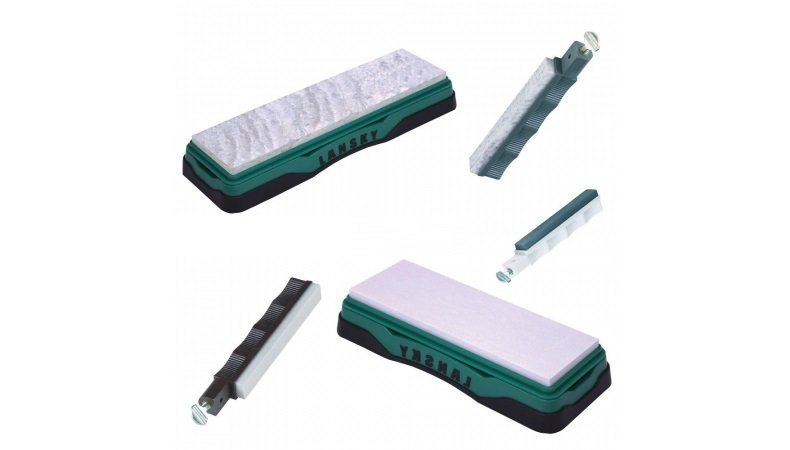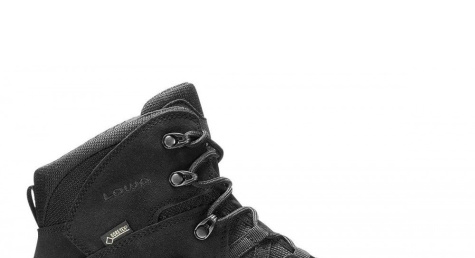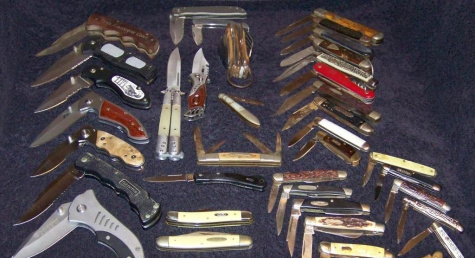How to choose a natural grindstone from Arkansas
Arkansas natural grinding stones excel in excellent grinding capabilities, making them increasingly popular among both beginners and professionals in manual grinding. In order to utilize their advantages and achieve above-average results, we will take a closer look at these grinding stones in this article.

Natural grinding stones from Arkansas
There is quite a lot of information on the Internet about grinding knives and other cutting tools. Hints and tips on how to use the sharpening system correctly, or how to choose a suitable sharpening angle, can be found almost everywhere. That's why we're going to do something a little more special and we will go all the way to Arkansas, America.
This is because this is where the Arkansas natural grinding stone, popular among grinders all over the world, comes from. But not everyone knows just at the beginning how to choose the right type. For many people may be a vague designation, such as Soft, Hard, Translucent, and more. So we will explain how it really is with them, and how you can utilize their advantages in the comfort of your home and achieve great results with manual grinding.
Basic information
We start with some general information on the origin and some properties of the Arkansas grinding stone. Arkansas, or Novaculite, is a microcrystalline to cryptocrystalline* rock containing silica in the form of cornea or flint. It usually occurs in white to gray and also black, with a density in the range of 2.2 - 2.5.
* cryptocrystalline - the prefix crypto means indistinct / hidden / unclear → cryptocrystalline rock therefore has a crystalline structure that is recognizable only under a microscope
The deposits of this rock include mainly the Ouachita Mountains in the states of Arkansas and Oklahoma, then Texas, but also Japan or the Middle East.
The name Novakulit is derived from the Latin word „novacula“ meaning a sharp knife or razor. Because novakulit is a very hard rock with a high density, it has been used since ancient times in the production of arrowheads and spears, and later as an abrasive material.
Division of Arkansas grinding stones
Natural abrasive stones from Arkansas are divided not by the size of grains but by the density and hardness associated with the roughness of the stone.
There are no differences in the size of the abrasive grains between the individual types of Arkansas, they remain approximately of the same size, the density just mentioned changes - i.e. the amount of grains joined by a binder.
In general, the less density and therefore the hardness of the grinding stone, the coarser it is. So the softer the stone, the more aggressive sharpening it ensures. Conversely, the harder the stone, the finer the finish of the edge makes.
Arkansas designation
Arkansas grinding stones are referred to by English adjectives: Soft, Hard, Translucent, True Hard and many more. However, we will stop only with the basic types and give a brief description of them.
Types of Arkansas
SOFT ARKANSAS
- soft grinding stone, also the coarsest type of Arkansas
- is used for all-purpose grinding of cutting tools like chisels or kitchen knives
- is suitable for creating sharp edges
HARD ARKANSAS
- harder grinding stone, finer grinding surface
- allows to achieve high sharpness and maintain excellent edge condition
- used for polishing and fine sharpening
TRANSLUCENT ARKANSAS
- hard grinding stone with extra fine grinding surface
- used to create details and maximally sharp edges
- ensures really fine sharpening and polishing
TRUE HARD ARKANSAS
- extra hard grinding stone
- extra fine like Translucent Arkansas
- allows to achieve a shiny finish of the blade
Now it may be clearer how to choose the right type of Arkansas according to individual needs. According to the recommendations of grinders from America, Arkansas grinding stones are also suitable for finishing tools such as razors, but they are mostly used when adjusting chisels and similar tools. Before use, it is necessary to consider the condition and also the type of grinded tool and consult, if necessary.
The users‘ experience shows that even the softest Arkansas stones definitely do not lack hardness and one must not be afraid of pushing when sharpening. In general, Arkansas has a much longer time and does not grind off like other man-made grinding stones. Working with them takes more time, so they are not too popular for conventional grinding, they are most often used for polishing and honing.
Grinding oil
You may also have wondered how it is with the use of abrasive oils when grinding with Arkansas. Opinions differ in this regard, but the vast majority of Arkansas grinding stone manufacturers advise their customers to use special grinding oil.
However, some users claim that if you never use abrasive oil, the stone will work the same way. In this case, it depends on your own decision, but the truth is that you do not spoil anything with the oil.
Pros and cons
Pros
- very durable material
- high hardness
- wear little
- the hardest Arkansas grinding stones create a mirror-shiny blade
- great for polishing
Cons
- more time-consuming work
- rare types (e.g. Translucent Arkansas) are more expensive
Natural grinding stones from Arkansas are great helpers, but they need time, patience and a firm hand. When you know how to use them properly, and especially when, they guarantee you unusual results.
We hope you learned something new while reading this article, and may be thinking about getting your own Arkansas now.
Therefore, don't forget to take a look at our offer of Arkansas grinding stones from the American manufacturer Lansky and choose the right one for you.



